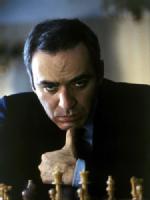The Art of the Cards
Philosophical musings on poker and life
-
2009-02-23 20:05:18
Is Poker a Game of Skill?
Thankfully, a man whose opinion matters found that poker should be considered a game of skill. This puts a bit of a dent in the laws surrounding online gaming, but, as Techdirt notices, no one is really sure how big of a dent. Somehow this ruling didn't help five men who the judge found guilty of running a gambling house. Without knowing the specifics of the case, it's hard to speculate, but if state law doesn't prohibit betting on games of skill... who knows.
I'm sure this is going to fan the flames of debate on the skill vs. luck topic, so I might as well provide some kindling. Everyone who has played a decent amount of poker would agree that it's largely a game of skill. Problem is we all know that there is a certain percentage of luck involved, too. The question is, where does the line have to fall to call it a game of skill? If I play tennis against Federererer or chess against Kasparov, I lose 100% of the time. No question.

CheckmatePoker against Phil Ivey and the number goes down ever so slightly. I don't think anyone could persuade me that poker is over half luck, but all it would take is the wrong judge looking at the wrong few games instead of the aggregate and we're back to square one.
When it comes to legal wranglings, it's nice to have that first ruling on our side.
May the malevolent poker gods become disoriented on their way to your table.


